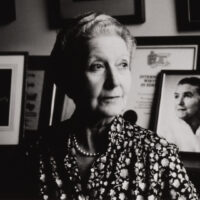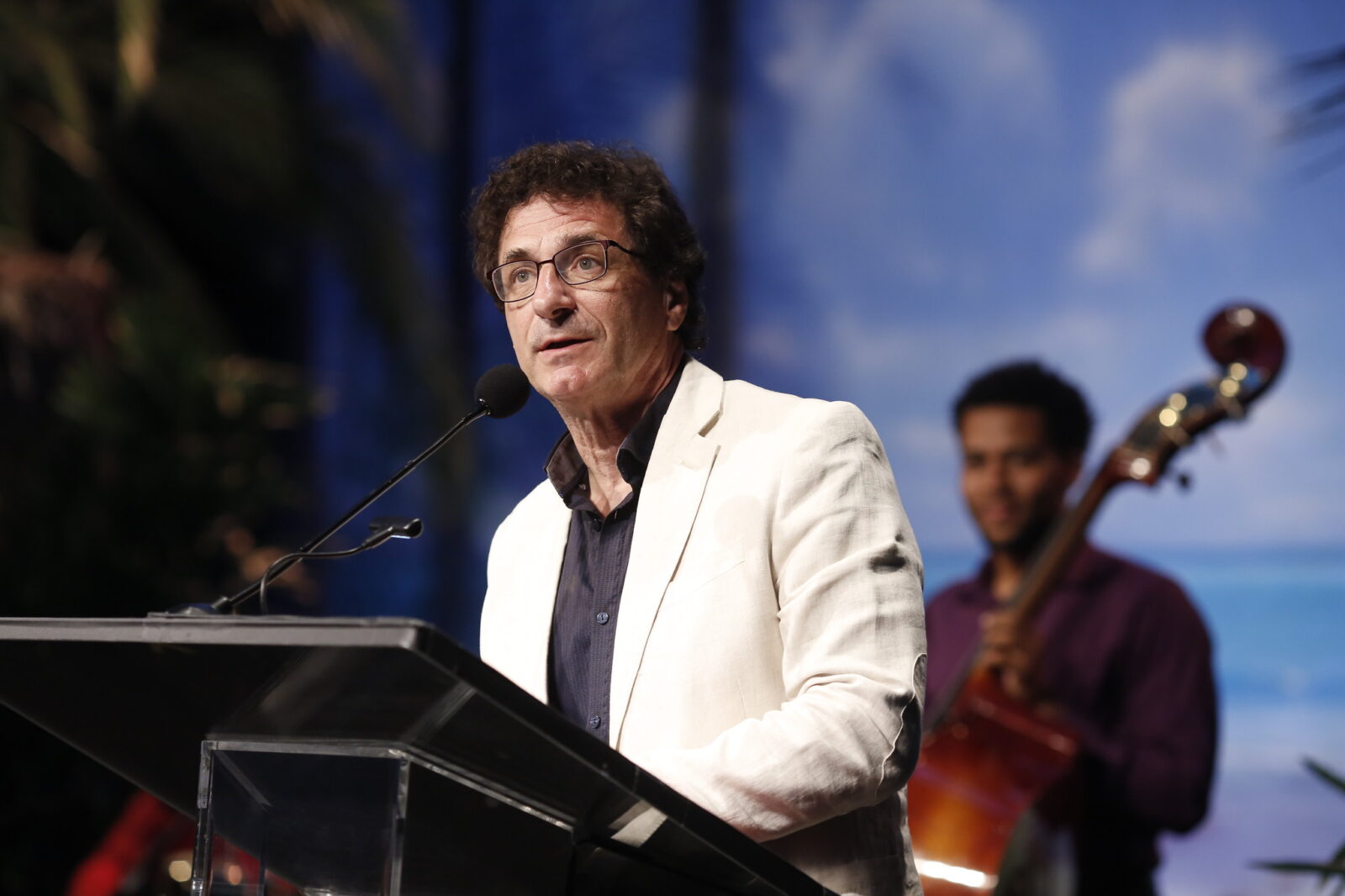
Robert Cutietta: 20 Years of Visionary Excellence
By Allison Engel and Diane Krieger
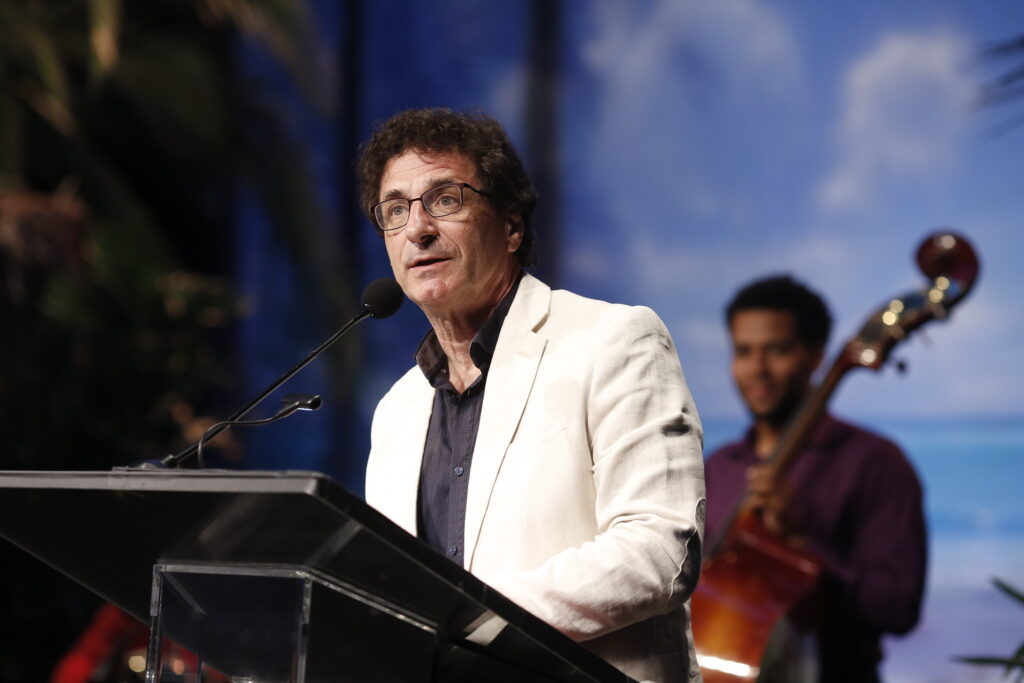
As he announces he will step down as the Dean of both the USC Thornton School of Music and the USC Glorya Kaufman School of Dance, Robert Cutietta reflects on 20 years of leadership at USC.
Over the past two decades, USC Thornton School of Music Dean Robert Cutietta has led an inventive reimagining of arts education. As he gets ready to step down as dean at the end of the 2021-22 academic year, Cutietta is quick to point out that the major changes happening during his watch have been far from a solo effort. Faculty members and administrators sharing his vision made it possible to push groundbreaking programs forward.
That, and his belief in a favorite quote he discovered at Disneyland. “If you go to the train station that’s behind The Haunted Mansion, you can hear Morse code coming from the station,” Cutietta says. “The Morse code is repeating a phrase from Walt Disney’s speech when Disneyland opened. Disney said: “Disneyland will never be completed. It will continue to grow as long as there is imagination left in the world.”
“I love that quote,” said Cutietta. “I live by that quote. And I’ve tried to use that philosophy for the school. We should always be in a state of change, adapting to the times, adapting to current imagination.”
Philosophy into action
Over the past 20 years, Cutietta has put that philosophy into action. He led a restructuring of the school into three divisions – Classical Performance and Composition; Contemporary Music; Research and Scholarly Studies – operating under the tagline “Three Divisions: One Extraordinary School.”
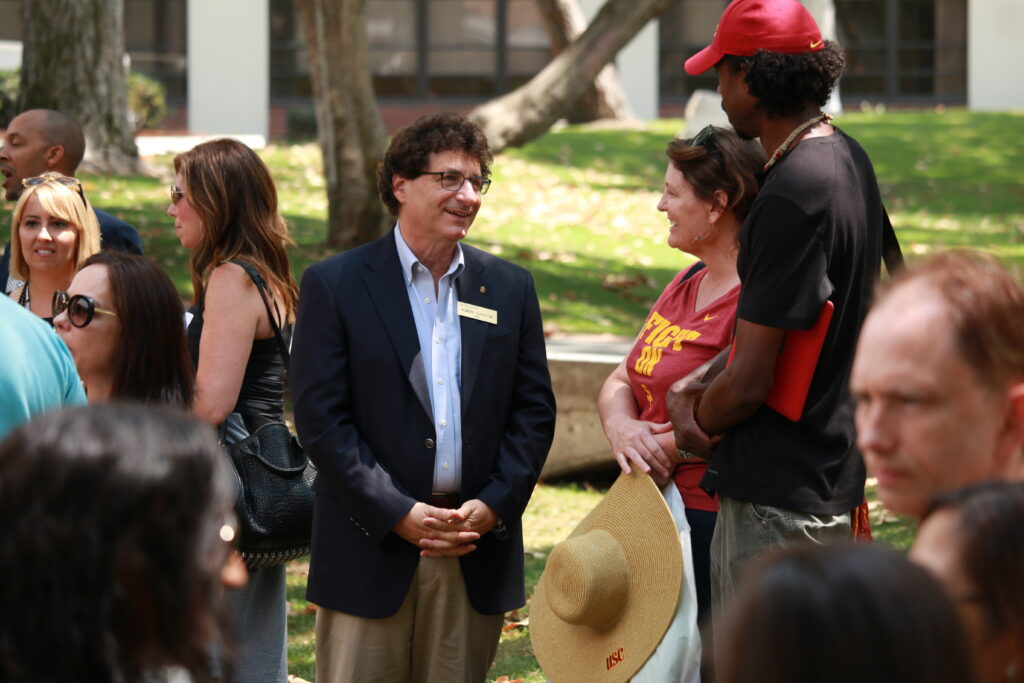
A brief history of successes at Thornton under his guidance include:
- Revamping the classical music curriculum to erase silos between genres, equipping virtuoso instrumentalists to function as entrepreneurs and digital-savvy technicians while protecting Thornton’s reputation as being among the best in the world. And, at the same time, expanding the repertoire to include more female composers and composers of color.
- Inaugurating the nation’s first Popular Music Program at a premier music school 11 years ago (over many objections), which quickly became the gold standard for such programs.
- Creating new majors in Arts Leadership, Community Music, Music Industry, Music Production, and Music Teaching & Learning.
- Helping to form the Pacific Alliance of Music Schools with USC Thornton as a founding member.
- Pioneering study-abroad opportunities for undergraduates.
- Increasing collaboration among USC’s celebrated arts schools, helping bring about a Bachelor of Arts in the Arts (involving all six arts schools) and two new degrees: Arts Journalism (involving all six arts schools and the USC Annenberg School for Communication and Journalism), and Musical Theatre (involving three schools – dramatic arts, music and dance).
- Creating new physical spaces for the School, including The Music Complex, Songwriter’s Theater, Schoenfeld Hall and Gateway Practice Facility.
- Growing the School’s endowment, allowing for the addition of five new endowed faculty chairs and an endowed professorship.
- Creating and hosting the radio show Ask the Dean on KUSC Radio for 10 years.
- Raising over $173 million, much of which directly helps students through scholarships and programs.
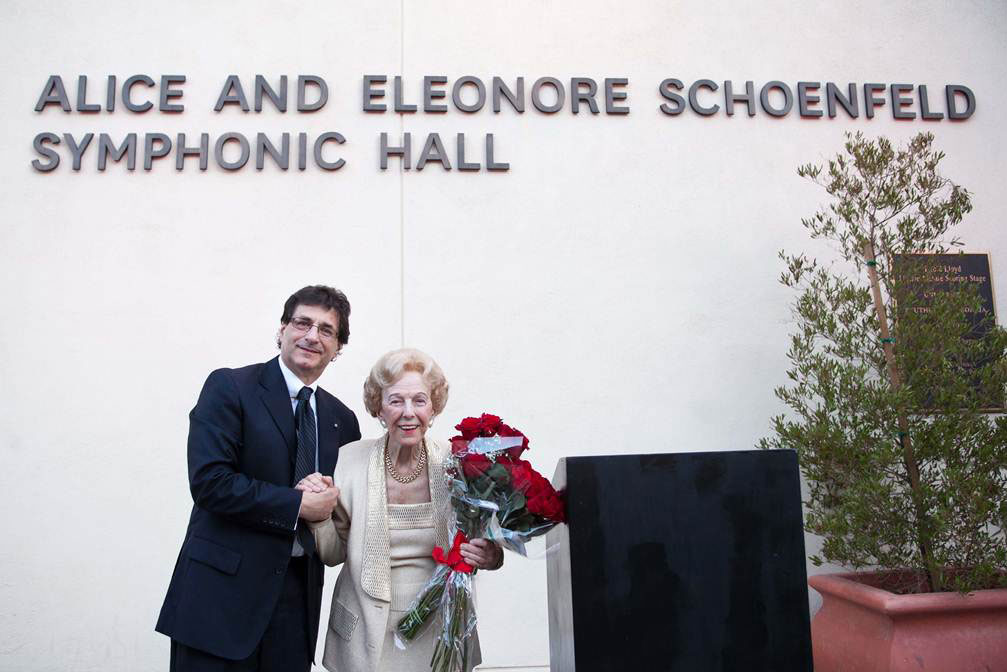
The first new school at USC in over 40 years
Beyond these accomplishments, Cutietta has established his place in USC history by being the major force securing the gift that founded the USC Glorya Kaufman School of Dance in 2012, the first new school at USC in 41 years. In addition to his deanship at USC Thornton, he has been dean of the Kaufman School since it opened its doors in 2015. He is stepping down from that position in June 2022 as well.
Cutietta had long felt that the celebrated arts schools at USC were missing an important partner in dance. With the support of Glorya Kaufman, he worked collaboratively with the high-quality professional USC Kaufman faculty and staff to build the innovative program that now offers a professional degree in dance (BFA), four dance minors, a joint degree in Musical Theater with the School of Dramatic Arts and USC Thornton, and non-major courses that serve thousands of USC students each year.
Bold changes
The list of accomplishments should be celebrated, but Cutietta also points to another change he instituted about which he is proud and hopes will continue: “Our tradition of playing harmonicas at the Thornton Commencement,” he says.
Nationally and internationally, Cutietta has cemented a reputation for making bold changes far ahead of his peers at other music schools, and being able to withstand pushback. When Thornton launched the Popular Music Program, for example, some initial feedback was brutal. “We were getting hate mail,” he recalls. “They said: ‘For a school like you, to allow that music in! How can you do that?’”
Cutietta has no patience for such snobbery.
“Why do music schools get away with teaching only 5 percent of what’s really music?” he wonders. “Good and bad music exists in every genre. There’s some really lousy classical music. Heck, I’ve written some of it! Same goes for pop, country, jazz. The poor quality ones don’t survive. Every genre has its elite, and that’s what we should be focusing on.”
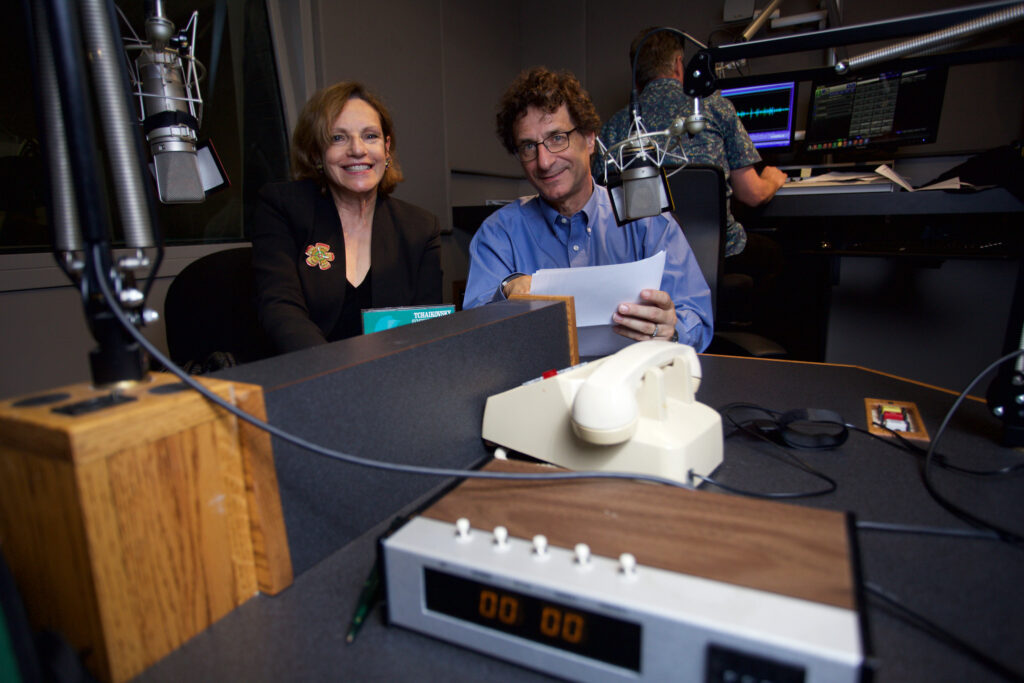
Before the launch of the Popular Music program, Cutietta promised faculty that admission standards would not be lowered. Secretly, he worried this might be unrealistic. But the bet paid off. “Turns out, there are a gazillion extremely talented kids out there with hybrid backgrounds,” he says. “And nobody was serving them.”
While several European conservatories have started to incorporate pop genres into their curricula, it’s a source of frustration to him that so few American music schools have followed USC Thornton’s lead.
“They are so tied up with having the best wind ensemble, the best marching band, the best orchestra that they can’t see beyond that,” he says. “Yes, those are important but they can’t be the only thing we focus on. The other part of the equation is that it’s very hard to make this change. I couldn’t have done this if I wasn’t at USC. I had the resources and freedom to hire new faculty.”
Successful musicians of the future
Offering a program of study in popular music was the opening salvo in a multi-front attack on outdated traditions.
For the last 20 years, every professional meeting of classical performance educators has included a discussion on the need to adapt and grow. “All the schools look identical,” Cutietta’s colleagues lamented at conferences. “We’re not changing to meet the changing needs of the students. We’ve got to do something different.”
It took two and a half years of intense discussion among USC Thornton’s senior administration and its celebrated classical performance faculty to devise something different. The strategy they came up with gives student-artists the freedom to take any music electives they want, study abroad and pursue self-defined goals, while maintaining a robust core of performance, history and theory classes.
“Successful musicians of the future have to do so much more than play music on the page,” Cutietta says. “They’re going to have portfolio careers. They need to be content creators. They cannot afford to have an elitist attitude.”
USC Kaufman has employed this same philosophy, building the dance school around the idea of hybrid artists working in blended genres. “For today’s students, it’s not hip hop or ballet,” he observes. “It is hip-hop and ballet plus much more.”
Reflecting Los Angeles while looking abroad
Any conservatory, he believes, should reflect what’s unique about its location. He believes this so strongly that he worked with the faculty at Thornton early on to make this one of four missions of the school: To reflect the unique artistic landscape that is Los Angeles. He has strived to make both USC Thornton and USC Kaufman express the culture of their homes in Los Angeles, providing opportunities for students to perform in venues across the city, and bringing in professionals from Hollywood and the music and dance industries to speak and teach.
At the same time, he believes students should experience music cultures in other locations. Four years ago, USC Thornton became one of the first American music schools to offer systematic undergraduate semester long study-abroad opportunities. Conservatories traditionally have frowned on students leaving the school for extended periods, seen as an unnecessary disruption in the intense maestro-protégé relationship they hope to foster.
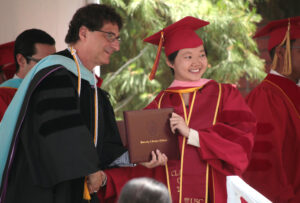
“We’re in an international age now for musicians,” notes Cutietta. Global travel builds multicultural sensibility, widens professional networks and hastens artistic maturity.
This international focus has paid off for students and the Thornton School. In 2018, USC Thornton was voted into the prestigious cohort of worldwide music schools called ConNEXT as the only music school in the U.S. to achieve this international designation.
International travel will be on Cutietta’s calendar for the immediate future. Starting in July 2022, he will be on a two-year sabbatical from USC. Although he’s excited about the possibility of teaching courses at USC in the future (before becoming dean, he taught graduate courses on research design in music, learning theories in music and psychology of music), he has the possibility of spending six months in Europe doing research on changes taking place in music education in response to the pandemic and social unrest there.
Additionally, he will share what he has learned in his years as dean by being a consultant for several organizations. These include the international organization, MusiQuE, that does evaluations and accreditations of music schools all over the world. He recently led a review of a conservatory in Bangkok, Thailand. “I would love to do several of those a year,” he says. “It is very rewarding to help other music schools achieve their goals and dreams, and instructive for me to see how other schools deal with the many issues involved with teaching young musicians.”
Back to writing and music
And he’d like to get back to playing music and writing. Both were necessarily neglected while he was dean. Although he majored in classical guitar, his instrument of choice is electric bass guitar. He’s been playing since he was a 12-year-old in Cleveland. In fact, he was regularly playing five gigs a week in bars before he was old enough to buy a drink.
As for writing, it should be noted that during his teaching career, he has published five books and more than 50 journal articles. Two of those books, Raising Musical Kids and Who Knew? Answers to Questions About Classical Music You Never Thought to Ask, both aimed at general audiences, were written while he was dean.
For his next project, he’s started work on a new book, a guide for people who are going into arts leadership. He’ll use his experiences at USC as examples.
“We really created the foundation for the future of arts education here,” he sums up. “We’ve done here what people are saying we should have been doing all along. I have worked to leave the schools on an upward trajectory for the next deans, and I can’t wait to watch how Thornton and Kaufman will continue to lead the profession in the future.”

